Reflections on a Teaching Career #10
The final chapter: teaching after COVID, changing students, maintaining contact with former students, and retiring from De Paul
There was an initial energy to going back to the classroom after the COVID-19 pandemic. Generally, most students seemed glad to be there as did many faculty members. Of course, everyone had to wear masks for that returning term at DePaul but we weathered through it. While I wasn’t thrilled about the long commute into the city, since I was only teaching on campus twice a week, it wasn’t too much of a burden after the pandemic lock down.
However, I started noticing a change in some of the students. Depending on the course, they seemed less communicative than they had been in the past. Many didn’t talk to each other before class and instead almost uniformly stared down at their phones. It was not unusual to walk into a room full of students and hear nothing. This also meant there were less students who wanted to interact with me before a class session. Yes, there were the occasional students who sat near the front of a room who regularly wished me a “good morning” but most chose to sit in their seats and text or read messages. I could have been more engaging myself but sometimes that just felt too forced.
For some reason my Foundations of Television courses tended to be more interactive than my Foundations of Cinema for Majors courses. This was a bit odd because one might assume the latter group of students were there because they really wanted to be with fellow majors. Since I was the one who structured the courses I could have made some changes but I was getting to a point where any additional changes would require more work than I was willing to do.
Teaching a few online-only courses became more common for me. Since most of my lectures had been pre-recorded during the pandemic, this proved to be a no-brainer, especially as Frank and I wanted to spend more time in Palm Springs from December until March. Those winter quarters at DePaul I only wanted to teach online and I didn’t have much trouble getting one to three courses to teach asynchronously. However, I started finding that most of the students in those courses were business students taking film to meet general education requirements. While most of them were decent students, a number were expecting an easy A and would “do anything” once they realized their final grades were in the C or D range. I became pretty hardened with my rules and didn’t offer any extra credit or revisions. If I did it would extend the time the other students in those courses would have to wait for their final grades to be posted. Plus, I felt strongly that students should adhere to deadlines and requirements. What were we teaching if we didn’t enforce them?
In the Spring of 2024 I had two on-campus classes. The first consisted of a fairly lively group of students enrolled in Foundations of Television. The second was a pretty quiet class in Foundations of Cinema for Majors. While there were a few students who seemed to connect with each other before and after class, the majority stuck to the new tradition of staring at their phones. Some would not take notes, which had become an ongoing battle throughout most classes. I’d been going back and forth about my policies on allowing electronic devices to remain on during class time. Regardless of what I said, phones or laptops would slowly get pulled out more and more as each term went on. All of this began to weigh on me. Were my teachings not interesting enough for them? Didn’t I deserve their respect and attention? Well, times had changed and whether they felt those things or not seemed to be less relevant to them. Most students would sit with blank looks on their faces. (I’ve recently heard this generation being referred to as one of “zombie students.”) In the latter class I made frequent requests for students to take notes and participate more. (Participation was always a part of their grades but that didn’t matter to some of the them.) At one point, I had an intense moment in front of the class and said I didn’t understand them. Why wouldn’t they want to discuss and get to know each other more. Didn’t they realize they were becoming professional colleagues of each other? This was also true about arriving late. I’d made it clear on my syllabus that late arrivals would mean being marked absent (they were also graded on attendance.) Did they really want to be known as the person who might arrive late to a film set?
I was feeling a disconnection with my students now more than ever. Even film majors seemed uninterested in older films, directors, and techniques. They just wanted to be in the business of making films. There were countless film references I had to stop making as many of the students were becoming less and less aware of anything pre-21st Century. (“Wasn’t Woody Allen the character in Toy Story?”)
It was during that term I decided to explore fully retiring. I needed to figure out how to make it work financially. Thankfully I got hooked up with a representative at Fidelity Investments who helped guide me through the process of pulling my various funds together to make retirement a reality. I set a target date of April 1, 2025. This meant teaching a couple more courses in the Fall of 2024 and at least one in Winter of 2025. I managed to get all of these remaining courses online. I was done with going down to DePaul.
Once I let one or two individuals know that I’d be retiring I was a bit surprised at the lack of acknowledgement I received. Many of my full-time colleagues at other institutions would make their decisions known and their departures felt like seismic events with parties, gifts, and tears. Perhaps I should expect less as an adjunct but internally I felt like I had devoted the last 28 years of my life to teaching thousands of students which was measurably more than my full-time counterparts. I’d learned though that I needed to congratulate myself rather than expect outside forces to do it.
About halfway through February of this year I received messages from a few colleagues about my impending retirement. (As of this writing I still haven’t heard from my department head.) While on our drive back from another winter in Palm Springs, I started grading final papers from my last online course, The Art of Screen Acting. The day we arrived home, last Wednesday, March 19th, I sat and graded the remaining papers AND submitted my final grades. I capped off the day with a bourbon and a Facebook post proclaiming it was time to celebrate. I was done with my teaching career!
People have been asking me how it feels. What I’ve said is that I’d been weening myself away from teaching since the pandemic. Once I had retired from Moraine in 2021 I had cut my course load in half. For the last couple of terms, I was teaching online and essentially only grading papers and answering students’ emails. It’s been a gradual transition for about five years.
Will I miss teaching students about my love of film and television? I don’t think so. I’ve done it for so long that moving on to other things seems like a natural place to be at this point. (Plus, I now have Substack as an outlet.) I loved being in front of a classroom, especially when I felt like all my cylinders were on fire and I was completely on a roll. It felt like being a well-oiled machine where I was not compromising who I was.
I will miss the interactions I’ve had with so many of the students I’ve developed special bonds with, especially those who seemed to have been affected by my teaching. Many of them I have continued a friendship with. Sadly, at least two have passed away since they were my students. Zack was the president of the filmmaker’s club at Moraine and he appeared in two of my Scotty films. I was devastated to hear that he was killed in a car accident only a year or two after getting married. (Frank and I attended his wedding.)
Another student, Jairus, passed away only a little over a month ago of cancer. He was a sweet and dedicated member of the Moraine filmmaker’s club. He also worked on one of my Scotty films and then assisted me when I coordinated a film festival at Pride Films & Plays in Chicago. I had my last contact with him just three weeks before he passed. I didn’t know how grave his situation was but he had a positive spirit and was looking forward to getting back to filmmaking and acting.
I’ve been completely fulfilled by my experience teaching. It changed my life AND my view of what a career could be forever. I’m extremely thankful for the opportunities given to me by College of DuPage, Moraine Valley Community College, and DePaul University. Teaching at these institutions has been a great privilege and honor.
I also have to thank the many students who have remained in contact with me. Your transition from being students to friends and colleagues has made every moment of teaching worthwhile. Here are only a few of them:
And finally, here’s a lengthy interview I did in 2023 with my former student Mark Pedri who directed a documentary called Dear Sirs.





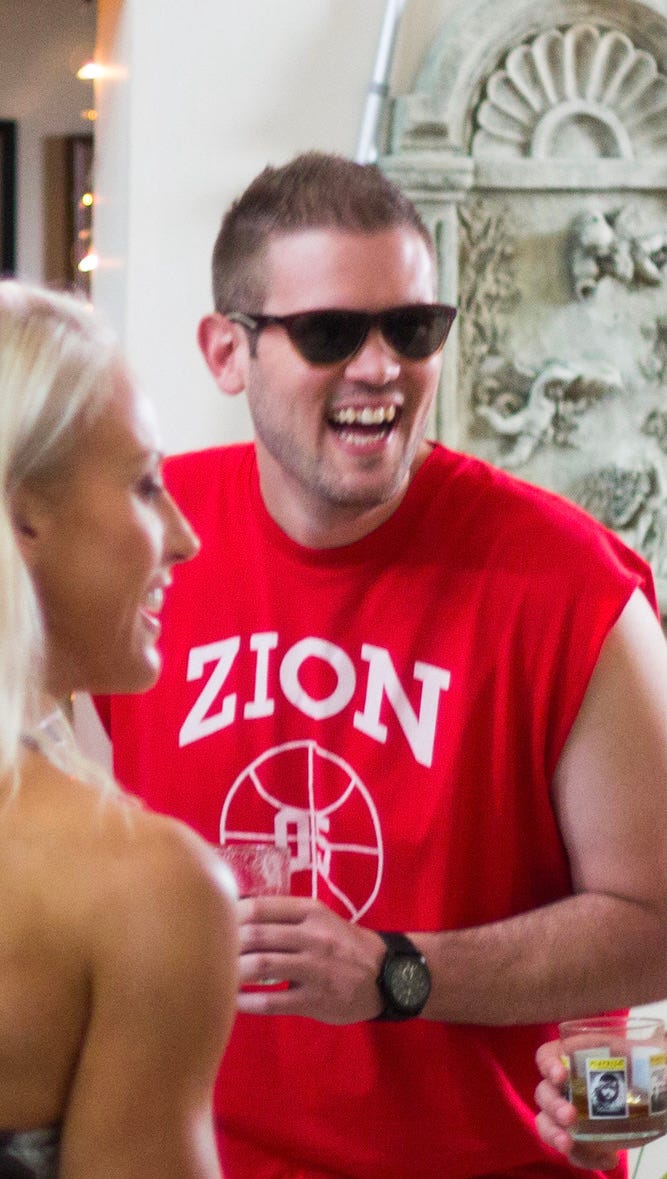
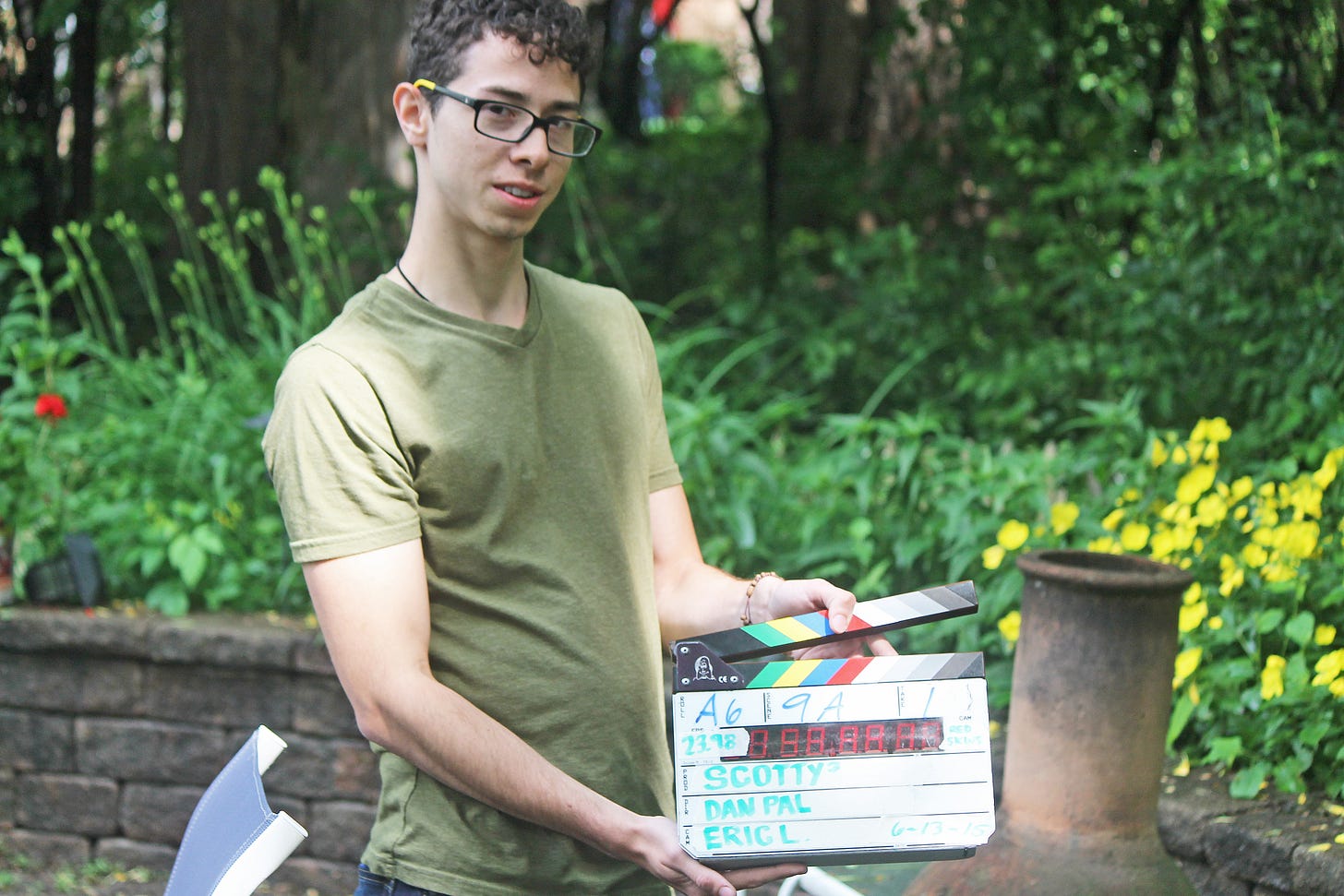
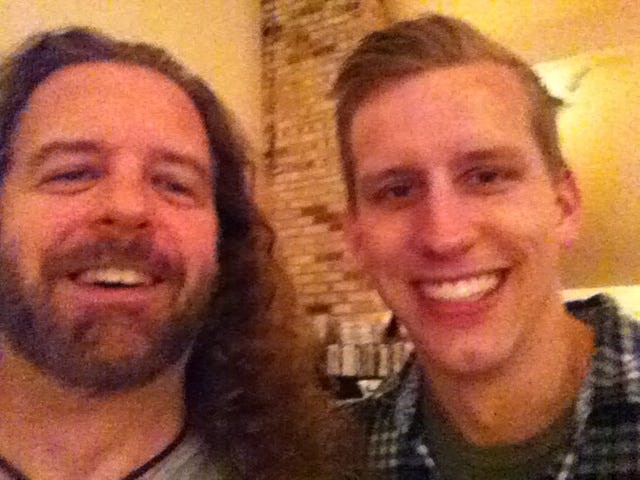
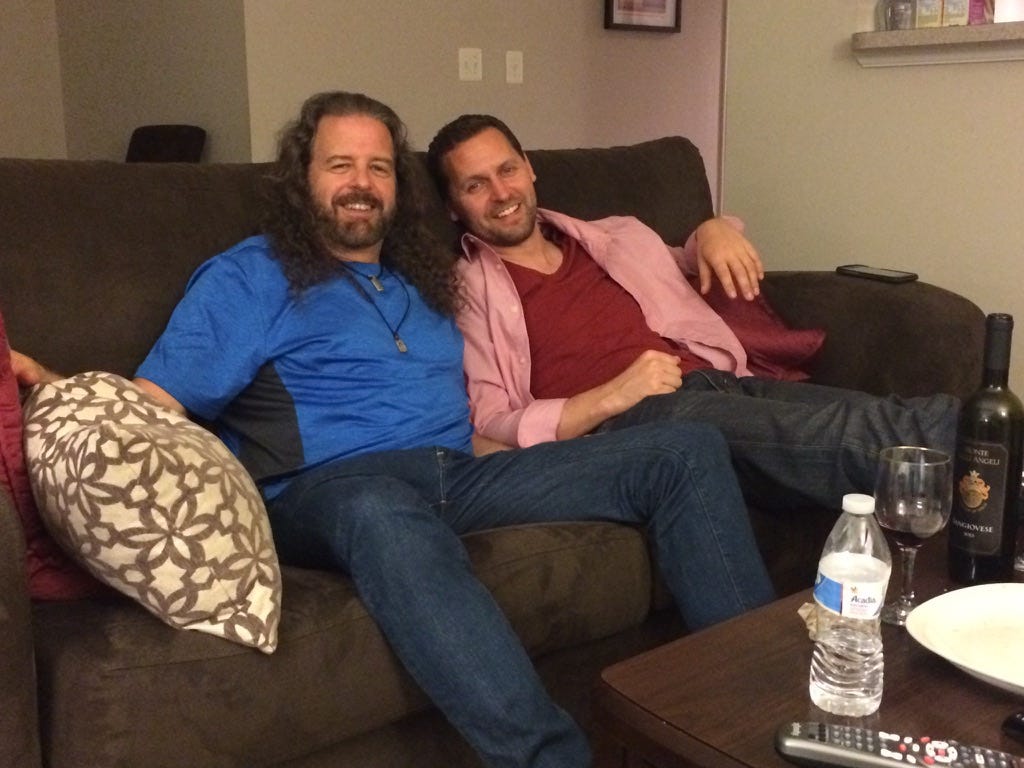
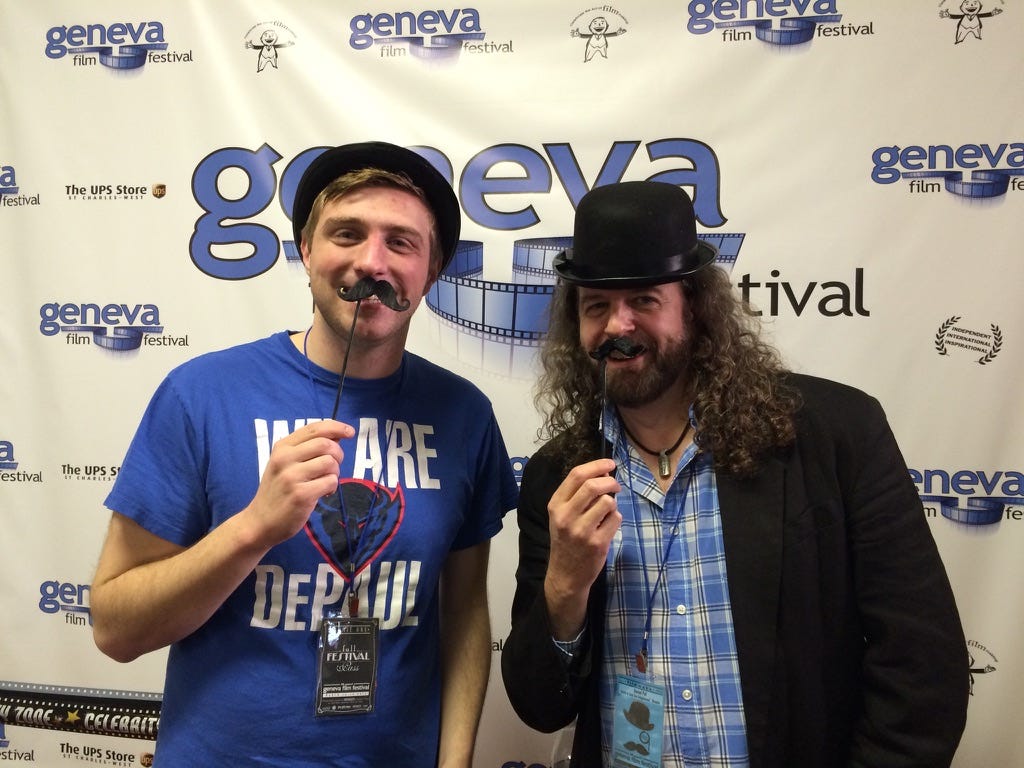
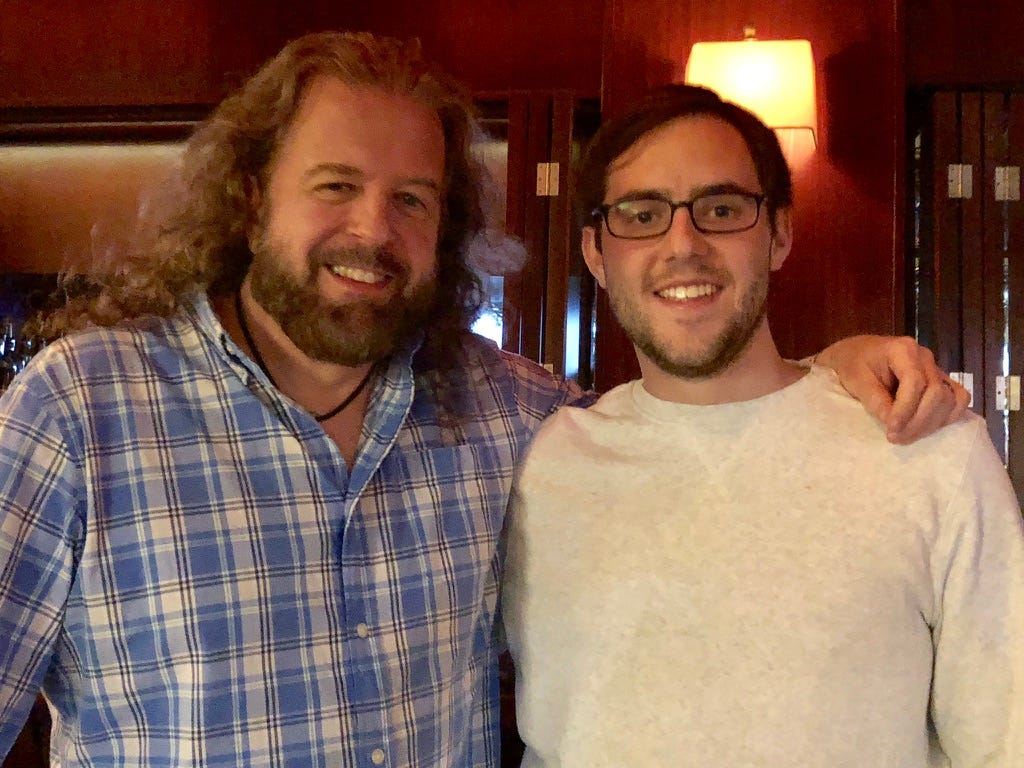
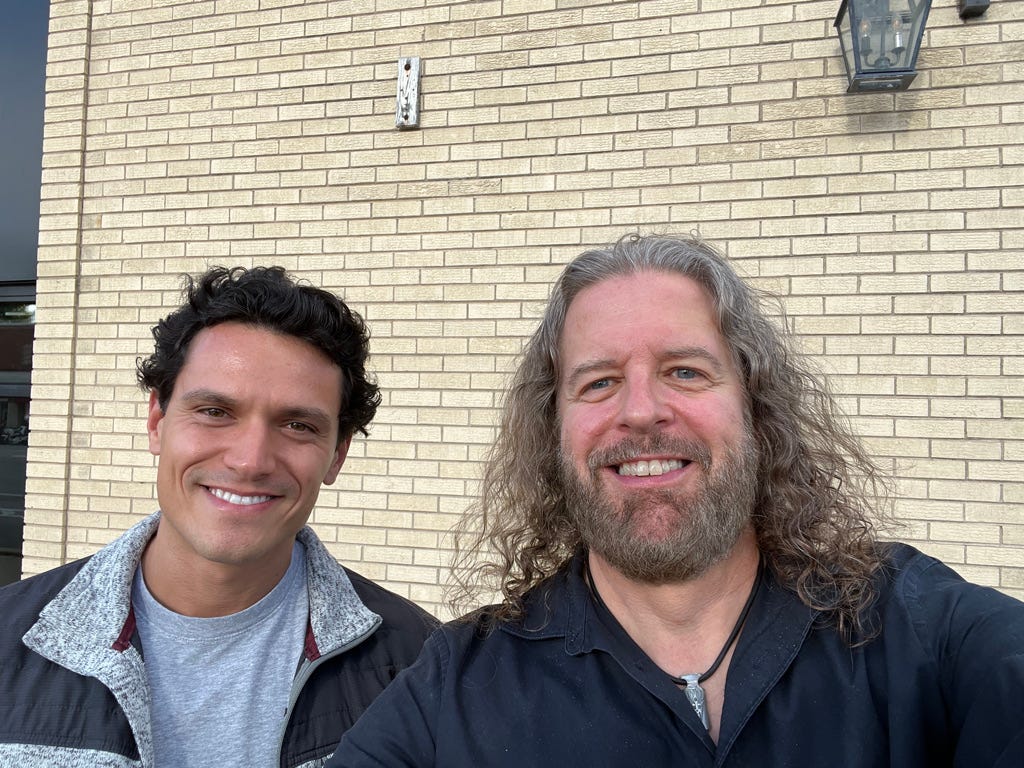
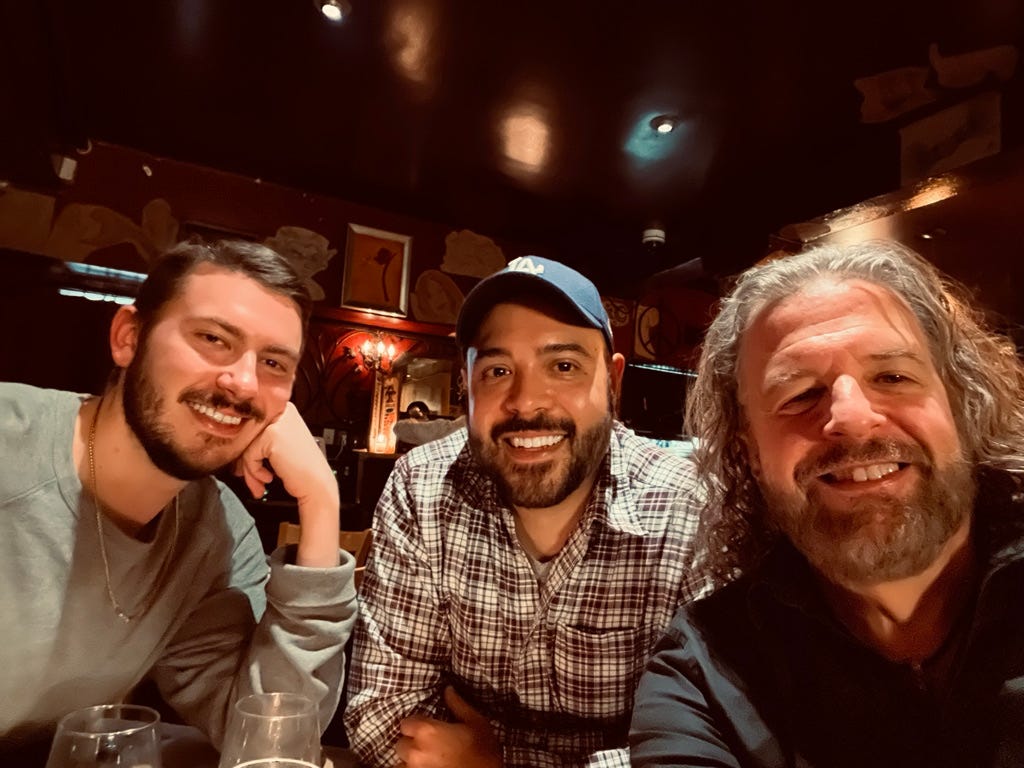
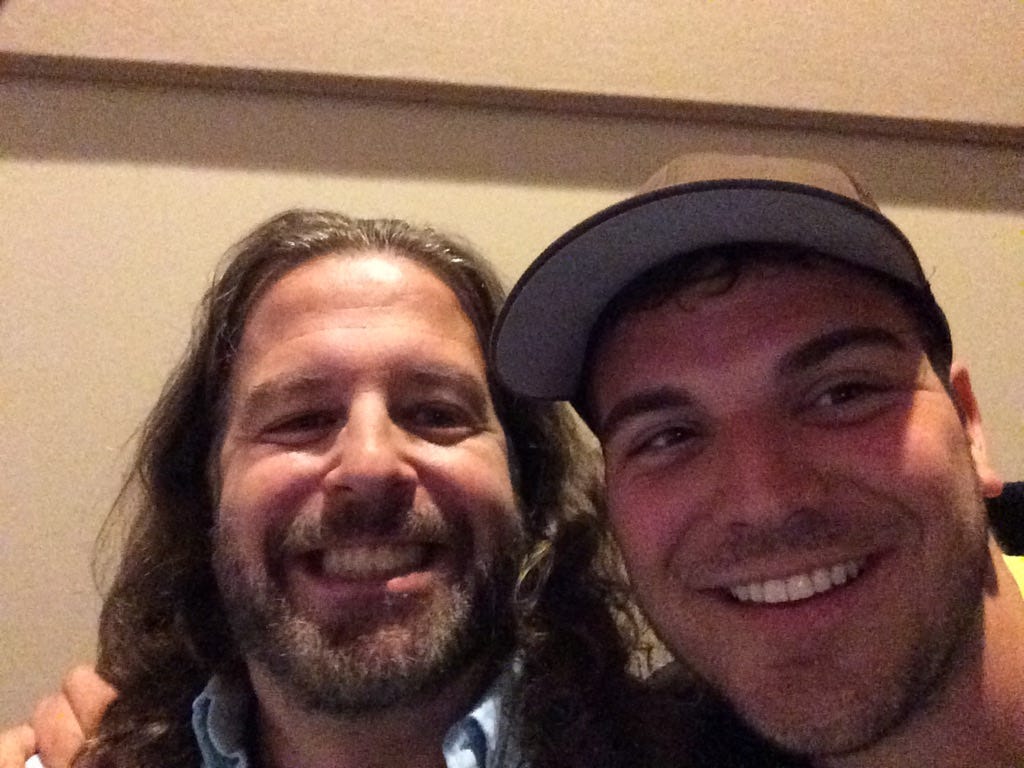

Dan, reading about your teaching journey has been both enlightening and deeply familiar…..I feel all of your pains, and I look forward to all of your joys when I put down the chalk next year.
You mentioned it in this entry, and it’s something that drives me crazy too: the lack of note-taking. They simply refuse. They tap their phones, sit there empty-handed, as if they have photographic memories or as if nothing worth remembering could possibly happen in class. I had to implement a policy: arrive a little early, say hello to your classmates and your teacher, take out something to write with, and smile. Oddly enough, it worked. I remind them every so often, and I think the lighthearted approach has helped them become more aware of their own habits. I also use this policy as an example when I’m talking about nonverbal messages.
I also developed what I call the Rise Up System. Every class, students earn 20 points for showing up, 20 points for speaking up, and then complete a brief online reflection I call the write-up. Simple, but effective. Between that and my opening class policy, my students have become far more engaged. There’s more interaction, more humanity in the room. But the sad part? I had to regulate human connection. It no longer happens organically. Students don’t seem to care about what’s unfolding in front of them. College is just a means to an end—get the degree, get the job, make money. Intellectual curiosity feels like an afterthought.
Like the students you’ve made films with, I’m lucky to have the speech and debate team to keep me sane. Without those hard-working, inquisitive students, I don’t think I would’ve lasted this long.
Let’s celebrate your retirement once things settle down after my national speech and debate tournament. Congratulations on a fantastic career.
I believe we may one day look back on COVID as a significant turning point in history—it’s reshaped our world on many levels. In any case, congratulations on your retirement! Having more time to write on this platform will be a gift to all of us. I’m looking forward to reading more of your work here on Substack.